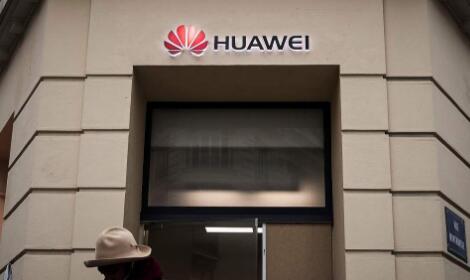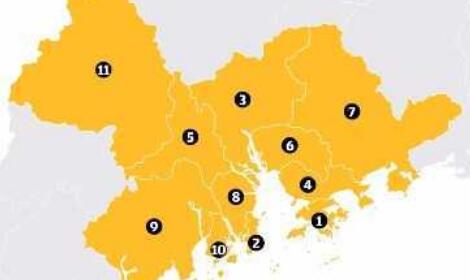为什么自动取款机以惊人的速度消失?一大波银行分支机构关闭 [联合国媒体]
在澳大利亚,银行每年减少大约8 %的自动取款机。根据消费者协会的一份新报告,在英国,自动取款机——或称现金柜员机——正在以每月300台左右的速度消失,这使得乡村地区的消费者很难获得现金。2017年11月至今年4月期间,关闭速度从2015年以来的每月50起稳步增长,已经增加了六倍。
Why Are ATMs Disappearing at an Alarming Rate after a Wave of Branch Closures?
为什么自动取款机以惊人的速度消失?一大波银行分支机构关闭
Banks are curtailing “cash services.” But why?
银行正在削减“现金服务”。但是为什么呢?
In Australia, banks are reducing ATMs by about 8% a year. In the UK, ATMs — or cashpoint machines, as they’re termed locally — are disappearing at a rate of around 300 per month, leaving consumers in rural areas struggling to access cash, according to a new report by the consumers’ association, Which? The rate of closures has increased sixfold in the period from November 2017 to April this year from a steady pace of 50 per month since 2015.
在澳大利亚,银行每年减少大约8 %的自动取款机。根据消费者协会的一份新报告,在英国,自动取款机——或称现金柜员机——正在以每月300台左右的速度消失,这使得乡村地区的消费者很难获得现金。2017年11月至今年4月期间,关闭速度从2015年以来的每月50起稳步增长,已经增加了六倍。
It’s all part of a broad trend. Bank branches are increasingly becoming so-called “customer advisory points,” where the primary role of branch staff is to sell customers a myriad financial products, many of them costly and/or risky, while curtailing the cash services they offer customers.
这都是大趋势下的小波澜。银行支行越来越成为所谓的“客户咨询点”,支行员工的主要职责是向客户销售各种金融产品,其中许多产品成本高昂,而且或许风险较大,因而这就削弱了他们为客户提供的现金服务。
Spain’s fourth largest lender, part state-owned Bankia, went so far as to remove all cash services from select branches (including my local branch), forcing customers to travel further afield to another branch that still offers cash services, or withdraw or deposit cash at the ATM. But those, too, are becoming increasingly scarce.
西班牙第四大银行,部分国有参股的Bankia银行,甚至取消了部分支行(包括我们当地的支行)的所有现金服务,迫使客户不得不前往更远的另一家仍提供现金服务的支行,或者在自动取款机上提取或存入现金。但是这些也变得越来越稀缺。
Harry Rose, of Which?, said:
他们当中的一员,哈利·罗斯说:
“These cuts could see millions of people who rely on cash in their daily lives struggling through these closures — with severe consequences for many communities and businesses. The impact is already clear — with machines closing at a frightening pace.”
“这些(自动取款机的)削减可能会让数百万依赖现金的人,在银行分支机构的关闭潮中日常生活将颇为挣扎——这给许多社区和企业带来严重后果。影响已经很明显了——机器正以惊人的速度在关闭。”
LINK defends the move by arguing that its own data on ATM usage reveals a drop in cash use. But others contend that cash usage in the U.K. remains more prent than LINK claims, citing statistics from the 2017 Association of Convenience Stores report which show that between April 2016 and April 2017 76% of transactions in 55,000 convenience stores across the country were still made using cash.
LINK为这一举动辩护说,他们自己的自动取款机使用数据显示现金使用量在下降。但其他人认为,英国的现金使用情况仍然比LINK声称的更普遍,他们引用了2017年便利店协会报告的统计数据,该报告显示,2016年4月至2017年4月,全国55000家便利店的76 %的交易使用的仍然是现金。
In the wake of the outage, as well as an IT meltdown at mid-sized lender TSB that left millions of customers locked out of their online accounts, people in the UK are apparently stashing more cash at home, according to a new survey by GoCompare Home Insurance. A quarter of the survey’s respondents said they now keep more cash in their house in case similar payment system failures happen again.
GoCompare 家庭保险公司的一项新调查显示,在停电事故以及中型贷款机构TSB的IT系统崩溃导致数百万客户被拒之门外之后,英国人显然在家里存放了更多现金。四分之一的受访者表示,他们现在将更多现金留在家里,以防类似的支付系统故障再次发生。
The irony is that while many British consumers may have rediscovered the benefits of having some cash on hand following the dramatic events of this summer, actually getting hold of the stuff is likely to get a lot more difficult in the future as more and more branches and ATMs are shuttered. The same goes for Spain, Australia and a host of other countries.
讽刺的是,尽管在今年夏天的戏剧性事件之后,许多英国消费者可能已经重新发现了手头有一些现金的好处,但随着越来越多的分支机构和自动取款机的关闭,实际上拿到这些东西可能会变得更加困难。西班牙、澳大利亚和许多其他国家也是如此。
alex in san jose AKA digital Detroit
Aug 15, 2018 at 5:38 pm
I just got tired of ATM fees ($2 to withdraw $20, no thanks!) and literally haven’t used one since the mid-90s.
我厌倦了自动取款机的收费(提取20美元要收2美元,不,谢谢!),而且从90年代中期后我就基本上一次也没用过自动取款机。
If they wanted my business now they should have thought about this in the 90s.
如果他们现在想要做我的生意,他们应该在90年代就考虑过这个问题。
JMiller
Aug 15, 2018 at 3:42 pm
Joe,
Even without bank branches or ATMs, bank runs can happen just as easily by having large numbers of depositors take money out of a bank electronically by transferring it to another financial institution like to another bank, a credit union, a mutual fund company, a brokerage, an insurance company, to a Treasury Direct account etc… In fact most money is moved in and out of the banks electronically.
https://www.investopedia.com/terms/s/silent-bank-run.asp
乔,
即使没有银行分支机构或自动取款机,银行挤兑同样也频繁地发生,大量储户通过电子方式将钱从银行取出,转移到另一家金融机构,如另一家银行、信用合作社、共同基金公司、经纪公司、保险公司、国债直接账户等。事实上,大部分资金都是通过电子方式进出银行的。
https://www.investopedia.com/terms/s/silent-bank-run.asp
Back in 2008 there was a run on prime money market funds in which investors fled out of them and into safer Treasury money market funds. This run on money market funds was done electronically.
早在2008年,基础货币市场基金出现了挤兑,投资者逃离这些基金,进入更安全的国债货币市场基金。货币市场基金的这种运行也是以电子方式进行的。
Only capital controls, such as preventing people from closing accounts and limiting the amount one can withdrawal or transfer from their account, can slowdown or stop bank runs.
只有资本控制,例如阻止人们关闭账户,限制人们可以从账户中提款或转账的金额,才能减缓或停止银行挤兑。
Sinbad
Aug 15, 2018 at 6:43 pm
“by having large numbers of depositors take money out of a bank electronically by transferring it to another financial institution”
“大量储户通过电子方式将钱从银行取出,转移到另一家金融机构”
If you can’t get cash, you can’t get your money.
如果你拿不到现金,你就拿不到钱。
JMiller
Aug 15, 2018 at 6:46 pm
Nonsense. And you think cash is money?
胡说八道。难道你认为只有现金就是钱吗?
doug
Aug 15, 2018 at 10:15 am
could credit unions help ? I would think many would join one…
放信用社能管用吗?我想很多人会这么干的…
Unamused
Aug 15, 2018 at 12:25 pm
Credit unions could help. It would be better to switch to something that isn’t scandal-ridden than to do nothing.
信用合作社可能会有点用。与其什么都不做,不如换个没有丑闻缠身的地方。
Unfortunately, most people do nothing. It’s worse than not locking down one’s credit accounts. Most people don’t actively manage their personal finances and basically just let things happen. They don’t balance their checkbooks, pay bills on time, check interest rates, and so forth. Really basic, simple things, but then, personal irresponsibility is very common. It’s not enough to complain about bad bosses, shoddy business practices, and poor governance. Good financial hygiene starts at home.
不幸的是,大多数人什么也不做。这比不锁定自己的信用账户更糟糕。大多数人不积极管理个人财务,基本上都放任事情发生。他们不偿还自己的支票簿,没有按时支付账单,也没有检查利率等等。都是非常基本、简单的事情,但是怎么样,个人不负责任是非常普遍的。仅仅抱怨糟糕的老板、卑劣的商业行为和乏善的治理是不够的。良好的理财状况始于家庭。
You might get screwed no matter what you do, but you should at least not make it easy for them.
不管你做什么,你都可能会被搞砸,但是你至少不应该让他们觉得可以轻松搞定你。
Finn
Aug 15, 2018 at 11:53 am
Yes I think you’re right and the logical progression will be the end of cell phones as well. All data will likely be stored on blockchains with access to your data being a combination of bio-metrics and passwords or whatever.
是的,我认为你是对的,逻辑进程也将终结手机。所有的数据都可能存储在区块链,你可以通过结合生物指标和密码或其他方式来访问数据。
版权声明
我们致力于传递世界各地老百姓最真实、最直接、最详尽的对中国的看法
【版权与免责声明】如发现内容存在版权问题,烦请提供相关信息发邮件,
我们将及时沟通与处理。本站内容除非来源注明五毛网,否则均为网友转载,涉及言论、版权与本站无关。
本文仅代表作者观点,不代表本站立场。
本文来自网络,如有侵权及时联系本网站。
图文文章RECOMMEND
热门文章HOT NEWS
-
1
他们认为,协商失败的峰会实际上符合中国的利益,而且北京的影响力将增加,因...
- 2
- 3
- 4
- 5
- 6
- 7
- 8
- 9
- 10
推荐文章HOT NEWS
-
1
这是中国中部河南省郑州的一个普通的星期六。富士康工厂大楼上空笼罩着...
- 2
- 3
- 4
- 5
- 6
- 7
- 8
- 9
- 10

















